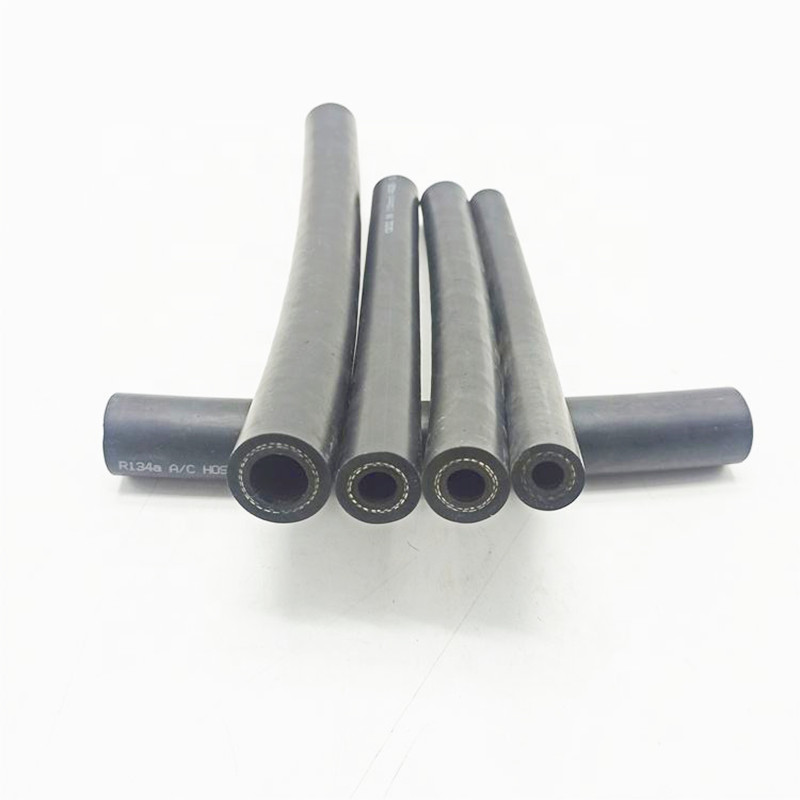11 月 . 21, 2024 05:58 Back to list
flexible metal hose product
The Versatile Solution Flexible Metal Hoses
Flexible metal hoses are an essential component used across various industries due to their remarkable ability to withstand high pressures and temperatures while accommodating movement, vibration, and misalignment. These hoses, often crafted from stainless steel or other durable materials, provide a reliable and cost-effective solution for fluid and gas transfer applications.
Design and Construction
The design of flexible metal hoses allows for significant flexibility and adaptability. The core of the hose is typically reinforced with woven metal braiding, which provides strength and prevents collapse under vacuum conditions. The outer layer may be covered with an additional protective layer, enhancing durability and resistance to external elements. This multi-layer construction ensures that these hoses can handle a wide range of applications, from industrial processes to aerospace needs.
Key Features
1. Flexibility As the name suggests, flexible metal hoses are designed to bend and twist, making them incredibly versatile. This feature enables engineers to route hoses around obstacles and into tight spaces, maintaining system integrity.
2. Corrosion Resistance Many metal hoses, particularly those made from stainless steel, resist corrosion, which is essential in industries such as chemical processing, where exposure to aggressive materials is common.
3. Temperature and Pressure Resistance Flexible metal hoses can efficiently operate under extreme temperatures, often ranging from cryogenic conditions to very high heat environments. They can also withstand high pressures, making them suitable for numerous industrial applications.
4. Vibration Absorption These hoses can absorb vibrations, proving invaluable in applications where machinery operates under intense movement. This characteristic helps to extend the lifespan of both the hose and the equipment it connects.
flexible metal hose product

Applications
Flexible metal hoses are utilized in various industries, including
- Chemical Processing They are used to convey corrosive substances safely, ensuring minimal risk of leakage while maintaining system efficiency. - Oil and Gas In the oil and gas sector, flexible metal hoses transport fluids and gases between different components of the production system, often in challenging environments.
- Aerospace The aerospace industry values lightweight but durable materials, and flexible metal hoses fit the bill perfectly. They are used in fuel lines, hydraulic systems, and more.
- Automotive In automotive applications, these hoses play a vital role in exhaust systems and fuel delivery lines, where they must handle extreme conditions and dynamic movements.
Maintenance Considerations
While flexible metal hoses are robust and durable, proper maintenance is essential to ensure longevity and reliability. Regular inspections should include checks for corrosion, wear, and any signs of leakage. It is crucial to follow manufacturer guidelines for installation and maintenance to avoid premature failure or safety hazards.
Conclusion
In conclusion, flexible metal hoses stand out as a reliable choice for transporting fluids and gases in various demanding environments. Their unique combination of flexibility, durability, and resistance to temperature and pressure makes them an essential part of many industries. As technology advances, the design and materials of flexible metal hoses will likely continue to improve, solidifying their role as a versatile solution in modern engineering applications. Whether in chemical processing or aerospace, these hoses exemplify the engineering advancements that meet the demands of contemporary industries.
-
Best Four Steel Wire Spiral Hose Hydraulic R12 – Durable High-Pressure Hose Manufacturer
NewsJul.08,2025
-
High-Quality 1/4 Hydraulic Hose – Soft, Flexible & Durable Rubber Hoses for Industrial Use
NewsJul.08,2025
-
1 1 2 Inch Hydraulic Flexible Hose - Durable, Reliable, High-Pressure Solutions
NewsJul.07,2025
-
High-Quality 1 2 Rubber Hose - Durable, Flexible Hydraulic Solutions
NewsJul.07,2025
-
Discover SAE Hydraulic Hose Types - High Quality & Durable Hoses from Leading Factory Supplier
NewsJul.06,2025
-
High Pressure Wire Hydraulic Rubber Hose Supplier Durable & Reliable 1SN Hose Solutions
NewsJul.06,2025
